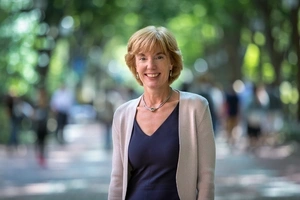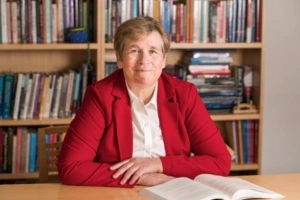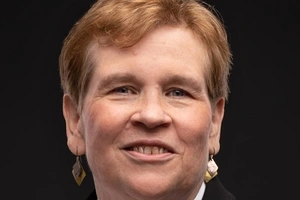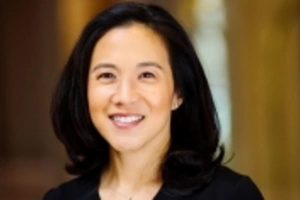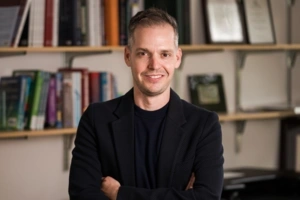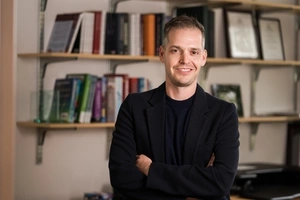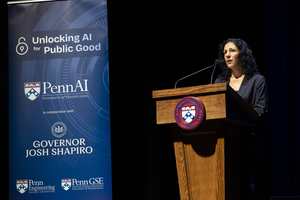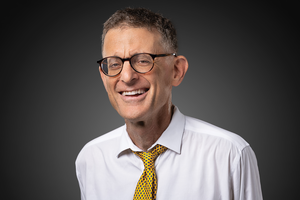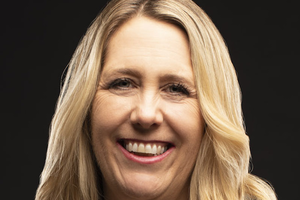When Yasameen Mohammadi interned with Save the Children in Serbia during college, she met a girl who, much like herself, had emigrated from Afghanistan to escape the war.
Unlike that girl, though, Mohammadi was able to pursue her education, thanks to her family’s financial resources. She earned an undergraduate degree at Bucknell University in Lewisburg, Pennyslvania, where she studied business administration and management.
“Her family couldn’t afford education,” Mohammadi says of the young refugee. The encounter made Mohammadi realize that she could use her own education to create opportunities for others. “I think every human being is capable and also has the potential to do great things, but, a lot of times, they’re not given the opportunity.”
So began her desire to work with refugees.
“The problem was that I didn’t have a lot of knowledge about the field of education,” she says. “I knew how it impacted me, but not all the ins and outs.”
Penn GSE’s International Educational Development Program (IEDP) is helping Mohammadi learn those ins and outs, and it is doing the same for many other students seeking to gain the skills and knowledge needed to advance educational opportunities in developing countries worldwide. Offered since 2010, the one-and-a-half year master’s program prepares students for careers by building an understanding of the interplay of politics, economics, and culture and how these dynamics impact educational systems and contexts globally.
IEDP uses a cohort model, annually enrolling about thirty students who hail from countries across the globe, creating a diverse range of perspectives and making for an especially diverse experience and strong professional network for graduates. The program’s curriculum enables students to build an interdisciplinary mindset, examining a range of topics from early childhood education and human rights to nonprofit leadership and technology for development. In addition to foundational courses, students have access to courses across the Penn campus.
IEDP is designed to effect social change through education and is committed to the United Nations’ Sustainable Development Goals and uplifting marginalized communities around the world, including in the United States.
Bringing those lofty goals to life requires specificity, which is why the program’s curriculum includes simulations to hone practical skills. One of the program’s core classes, “International Educational Development Practice: Tools, Techniques, and Ethics,” has a project-based assignment in which students work in groups to create mock responses to real—but expired— requests for proposals from bilateral organizations and other international organizations. They then work together to design a program, incorporating monitoring and evaluation tools—all the while learning technical skills and tackling on-the-ground realities and ethical issues.
In other classes, students develop policy briefs, help organizations create curricula, and write op-eds. “I think tangible skills are really important and a cornerstone of our program,” says program director Ameena Ghaffar-Kucher.
Another feature, she says, is a twelve-week immersion internship—available to all students in good academic standing—that provides real-world experiences with the help of more than twenty-five partner agencies such as UNESCO, UNICEF, and major NGOs around the world. “It’s absolutely vital for students to be in a country and learn from local people doing the work,” Ghaffar-Kucher says. “It’s a paraprofessional experience, really learning to put into practice what they’re learning in the classroom.”
For Mohammadi, Penn GSE’s IEDP proved to be the right fit.

“Its mission aligns perfectly with what I want to achieve,” says Mohammadi, who wants to design and implement education programs to help refugee populations. “My main purpose for getting into the field is to help eradicate gender and geographic constraints on freedoms, independence, and socio-economic mobility.”
Ghaffar-Kucher says the surging numbers of international refugees underscore the need for IEDP graduates: There are 89.3 million people who have been displaced by war, violence, persecution, and human rights abuses, according to the United Nations High Commissioner for Refugees. That figure is more than double what it was a decade ago and increased by nearly seven million in 2021 alone.
“There’s a lot of work to do,” Ghaffar-Kucher says. “We need creative, dedicated people to tackle those problems.”
Dawn Scholastica Adrian of Miri, Malaysia, who is enrolled in IEDP with Mohammadi, interned over the summer with UNESCO’s inclusion and gender team—based in Paris—and extended the experience through the fall. Adrian is building a database that examines Indigenous language issues of small islands and developing states, such as Fiji, Cape Verde, and others, with the goal of assessing whether a mother-tongue- based, multilingual education may succeed in preserving the language, culture, and history.
“It’s the most astonishing research for me,” she says, noting how Indigenous people of many small islands learn English or French in school, but not Indigenous languages.
The experience is helping Adrian formulate a new approach for Indigenous education in her native Malaysia—a career goal that was the driver for her pursuit of a master’s from IEDP.
“Indigenous language is a way to pass down stories, generation to generation,” Adrian says. “If you move away from that, you begin to lose a little bit of your culture, of your history.”
Adrian, herself, is from the Iban tribal community, where she has often been reminded of the importance of education—and the great need for access to it. She feels fortunate to have gone to school in New Zealand, where her father worked in the oil and gas industry, with stints in British and American international schools in Malaysia. Adrian studied English literature and film at the University of Exeter near London, graduating with her bachelor’s in 2019. She says she learned about her culture by talking with relatives during visits home.
"I think tangible skills are really important and a cornerstone of our program."
Her varied educational experiences opened her eyes to the importance of education, particularly for Indigenous people. They also raised the possibility of creating a program that combines the best elements of each system. In New Zealand, for example, she saw how the Maori language and culture were incorporated into the mainstream curriculum. In Malaysia, she worked with rural and Indigenous populations, offering remedial support, she says.
“I think there is space where both of these can be combined,” she says. Adrian envisions a program where Malaysia’s Indigenous people are integrated into mainstream education, with remedial support, while they also are grouped together for lessons in their language, culture, and history.
IEDP, she says, is preparing her to make her vision a reality.
“I didn’t know how to build that space,” Adrian says. “I was hoping someone at Penn would just tell me how to start Indigenous education. I realized it was really on me. Everything they’re teaching me at IEDP, and the encouragement of my professors, is giving me the tools to form it myself.”
Mohammadi, meanwhile, is working with the International Rescue Committee (IRC), based in Denver, Colorado, for the summer and fall. As a youth enrollment specialist, she assists refugees, including many from Afghanistan, navigating the US education system by helping them enroll their children and make connections with local organizations.
The past year, however, has not been easy for Mohammadi, given America’s pullout from Afghanistan and the Taliban’s rise.
“I’m not going to lie,” she says. “In the beginning, it was very difficult for me to stay focused. I doubted myself whether education meant anything.”
Mohammadi has watched in horror as her country has fallen apart and education for women is once again restricted. Her family fled to Canada, and Mohammadi no longer envisions herself returning to work in Afghanistan, where women’s rights have been strongly curtailed by the Taliban, saying she would no longer feel safe.
Even now, Mohammadi is disheartened at times. “It’s been a year,” she says, “and not even international organizations can do anything about it.”
The current climate has only deepened her resolve to stay strong and focused on her goal of creating innovative refugee programs. “Even if I could help one or two people, that would be nice,” she says of her IRC and future work. “I want these people, these families, to have opportunity.”
With the help of IEDP, Mohammadi adds, she is doing just that. “The whole point [of IEDP] is to basically help you help other people recognize their capabilities,” she says, “and give them the tools to use those capabilities to do good, to become successful individuals.”
This article appeared in the Fall 2022 issue of The Penn GSE Magazine.
Media Inquiries
Penn GSE Communications is here to help reporters connect with the education experts they need.
